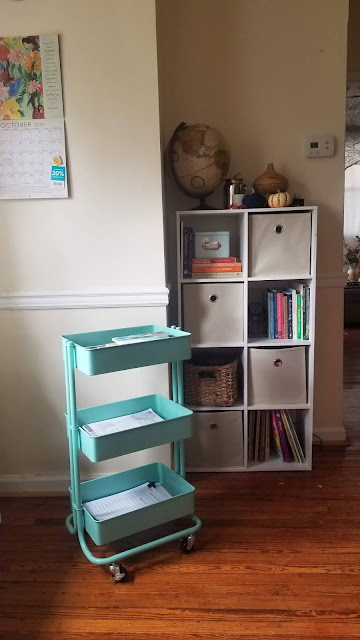a messy math table indeed
 |
When I was very young, I enjoyed math, looking forward to lessons with my mom every day, but in third grade I distinctly remember a palpable shift in my perception of numbers and equations. I would spend hours a week, seated at the kitchen table, staring at the math pages until nothing made sense anymore. I remember crying and snotting through division and while trying to memorize multiplication, playing with my pencil, making up stories in my head, poking holes in my eraser... anything to avoid finishing my work pages. For some reason, as the years went on, I felt like my value was placed in whether or not I was good at math. I felt dumb. I felt different. I worried that this would be my children someday, that I would unwittingly hand down a gene or something that would determine a mathless brain.
But what I didn't know yet, was that this is part of the beauty and freedom of homeschooling - we are the ones who determine the pace and energy. Math lessons don't have to take an hour. I didn't have to force my children to do 50 problems if they didn't want to. Math could be gentle, easy, slow, and even fun. This was not a race.
I learned to say, no matter the outcome of a lesson, "Are you ready to stop now? Is your brain getting a little tired? That's fine, you've worked so hard! Let's be done for the day. I am so proud of you."
I learned to point out that mistakes are okay, and obviously expected, because if we never made mistakes we wouldn't really need to learn anything, would we?
I learned to point out that perfect is not a thing -- that only God is perfect, and we are human, not God.
I learned to praise effort, not just correct answers.
I learned that it was okay to absorb a concept for two hours or two weeks, or skip lessons if my child already understood. I discovered that by doing short lessons and stopping before frustration and exhaustion set in, by not following up an intense, rich lesson with pages of more work, that my child could learn at the same pace as his peers, while maintaining the joy of learning.
Or sometimes, not keeping up with his peers for a time -- and that was okay, too. Because this is homeschooling. This is why we homeschool.
And through all this learning, I discovered the joy of math once again.



Comments
Post a Comment